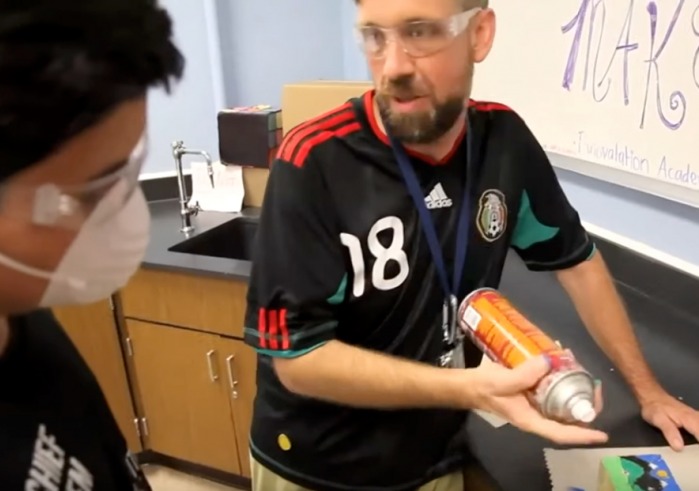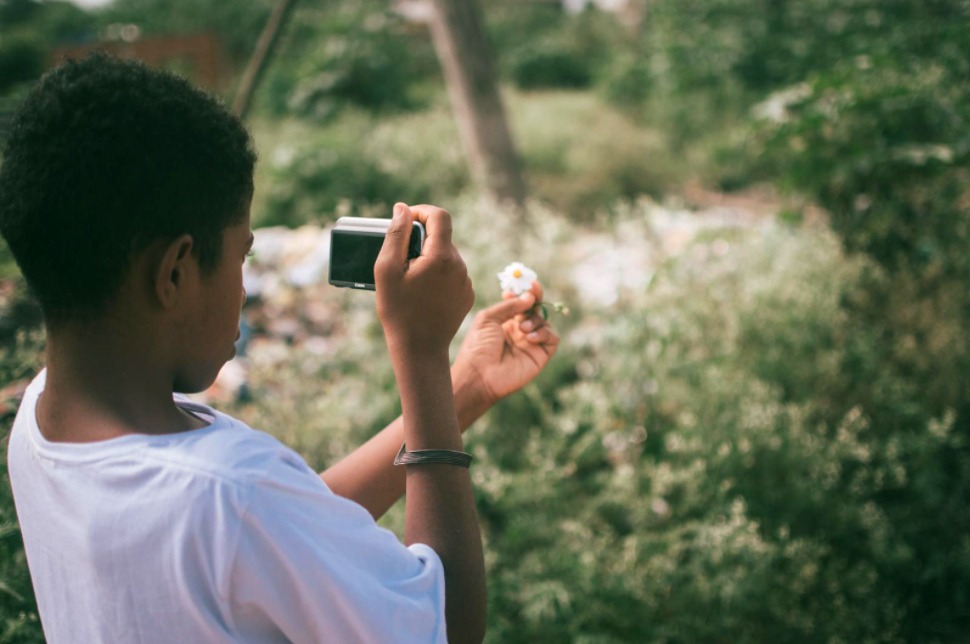“Build Forward Better:” Teachers From 20 Countries Draw Inspiration at World Summit of Educators

With teachers and students everywhere facing so many challenges, not the least the global pandemic, how can educators stay inspired?
The second World Summit of Educators, sponsored by Soka University of America, offered myriad solutions, and the online event itself was an energy-maker. Registration data indicated that of the 344 participants from 20 countries, 142 were teachers.
“It was so refreshing to hear how young people, who may not seem to have a lot of authority and access to levers of power, can change the world by virtue of their energy, optimism, and hope,” said summit co-chair Bryan Penprase, SUA vice president for sponsored research and external academic relations.
Global educators and citizens face a remarkable opportunity to “build forward better” after the pandemic and movements for social justice, Wanjira Mathai said in the summit’s keynote address.
“Inclusion, resilience, and shared prosperity must be at the heart of how we will, and we must, build forward better,” said Mathai, vice president and regional director for Africa at the World Resources Institute.
“Education has to be a major part of how we invest for a more sensible future,” she said. “It’s crucial that we do not go back to the old ways of doing things. Everything will have to change, including our education systems and how we prepare our young people in particular for the future.”
Mathai touched on education during climate change, building youth leadership, sustainable energy and landscape restoration — familiar themes in Soka Education.
“Her work, along with that of several speakers, showed in many ways that they are speaking the same language that we at Soka University of America are offering in our mission statement,” Penprase said. “Working in and searching for empowerment through environmental justice in Africa is entirely aligned with our dedication to the interconnectedness of humanity and nature and the power of education to unlock human potential.”
Celebrating milestones
With the theme of “Educating for Global Citizenship: Building an Equitable, Peaceful and Sustainable World,” the summit emphasized wisdom, courage, and compassion as well as the four pillars of education: peace, development, environment, and human rights.
The June 13 summit drew participants from Argentina, Brazil, Canada, France, French Guiana, Germany, Greece, Guyana, India, Israel, Italy, Japan, Kenya, Malaysia, Netherlands, Spain, Sri Lanka, Switzerland, United Kingdom, and Venezuela.
Registration data showed that 43 percent of attendees came from outside the United States, and this diversity helped summit organizers meet their goal of building visibility and relationships with educators across the world.
Organized by SUA graduate students, the summit also coincided with the 20th anniversary of the university’s Aliso Viejo campus and the 25th anniversary of a seminal moment: university founder Daisaku Ikeda’s address at Columbia University Teachers College in 1996.
“A speech that received little attention for 20 years has now become a driving force for change,” said 2021 summit emcee Prince Paa-Kwesi Heto, a 2016 SUA master’s graduate in educational leadership and societal change who co-chaired the first summit in 2016.
New global citizenship initiatives
SUA President Ed Feasel opened the summit with news of two initiatives — the Global Solutions Institute and the Pacific Alliance of Liberal Arts Colleges — to support education for global citizenship and research in pursuit of United Nations Sustainable Development Goals.
The new institute will also develop working groups to develop a course curriculum on education for global citizenship for every level of education from primary school through university.
Summit participants also heard messages of solidarity including from former UN Under-Secretary-General Anwarul K. Chowdhury. Urgency came through remarks from Soka University of Japan President Yoshihisa Baba.
“Society, the world, and humanity is in danger of being disunited,” President Baba said, noting the pandemic and other world-wide issues. “We are faced with global issues such as infectious diseases, global warming, and climate change that cannot be solved by mere individuals.”
The keynote address
Mathai is familiar to the SUA community. Maathai Hall is named for her mother, 2004 Nobel Peace Prize Laureate Wangari Maathai (1940-2011).
Ikeda recalled meeting Maathai and listening to “her hopes to convey to the younger generation that a genuinely fulfilling life is realized when one devotes one’s life for the sake of others,” said his message read by President Feasel.
“Thank you for honoring my mother on your campus, because I know just how much she connected with the principles we’re talking about today, that education is at the heart of how we transform the lives of everyone,” Mathai said.
The current “reset” of society, she said, depends on care for the environment, as her mother demonstrated with the Green Belt Movement. Today, 900,000 Kenyan women have planted more than 51 million trees to restore Kenya’s soil. Mathai noted that the world’s food supply depends on small farmers, most of whom are women.
“My mother understood profoundly well that education is about bridging the knowledge and practice gap,” she said. When illiterate farmers used their knowledge to help solve deforestation, they became empowered to stop public corruption. Mathai described this as “the noble work that education in all its forms does to empower to enable one to find their agency and to begin to do things for themselves.”
Peace and equality, Mathai said, are built from the ground up, with unwavering faith that “the wheat planted today will feed generations to come.” Global citizenship “is not about boundaries, it is not about languages,” she said. “It is actually across generations… Global citizenship is an expression of how we show up.”
She urged the summit attendees to commit to four actions (produce, protect, reduce, and restore) that make the natural world “the heart of how we move forward,” and to teach children to do the same “because we only protect what we love.”
While the threat of climate change is enormous—an estimated 100 million people are at risk of poverty from climate change, joining 3 billion people with inadequate access to clean water—everyone can do something.
“We have to start with what we can do, and in most cases you can protect the environment around you,” Mathai said.
“The sort of challenges we are facing in the world today require that we leverage other parts of ourselves and bring other parts of ourselves to bear,” she said in closing.
More inspiration
Spanning 10 hours, the summit offered meaningful insights about educating global citizens. Here is a sampling.
- “Warrior scholars” consider their education essential to the liberation of their communities, explained Jeff Duncan-Andrade, one of the collaborators in East Oakland’s Roses in Concrete Community School. Community-responsive teaching reaches the most vulnerable and wounded students to help them get what they need to learn. These priorities help imbue students with purpose and a moral compass. “Schools need to be places that capture young people’s hearts and minds and not just places where they feel like they’re doing time,” Duncan-Andrade said.
- Students thrive through interconnected support networks built on gratitude, greatness and grit, said Chula Vista Elementary School District Superintendent Francisco Escobedo. The district’s faculty, staff, parents, and community partners (including corporate sponsors) unite and invest themselves to support students’ aspirations for the future. Innovative immersive programs sustain students’ earliest interests in STEM, for instance. “We couldn’t do it without the relationships we’ve created,” Escobedo said. “In fact, I do believe that the relationships have saved lives.”
- “Global Citizens: We Arise in a Time of Crisis” was the theme of the first Youth Summit, held earlier in June and attended by 150 young people from 18 countries. “We have sought to turn the adversity of the pandemic and other crises into an opportunity to develop global solidarity among young people and to maximize our power as youth,” they said in a video report to the larger summit. Each attendee had the opportunity to practice Mr. Ikeda’s four intertwined processes of global citizenship (learning, reflection, empowerment, and leadership) and consider the kind of world they would like to see in the aftermath of COVID-19. For example, students at the University College of Applied Sciences in Gaza City who have experienced deadly air raids described their hopes of regaining full access to education and jobs by 2030. Another student, Naylah from Brazil, stated her resolution going forward: “The world that I want in the future is one that everyone can have access to education.”
- Creative student projects, continuing education and mentoring help SUA alumni teachers stay engaged. Based in the United States, Canada, Brazil, and Japan, the teachers showed how their SUA education enabled them to advance global citizenship and foster peace in communities that are threatened by gentrification and poverty. For instance, Jamie Haynes, a 2016 master’s graduate who is now a middle school teacher in Austin, Texas, led a summer program in which students documented the destruction of murals in their gentrifying community and then created their own art with debris they collected. “Because it was so experiential
and I had so much freedom to teach the things I was interested in, passionate about,” Haynes said, “I really feel like that translated into the students’ enthusiasm.” - Pop culture and the arts can help teach science and technology, and better prepare humans for the profound impacts of artificial intelligence, biotechnology, and other massive advancements. Online, students can benefit from complex animations of ideas like special relativity that would be impractical for classroom teaching, said Tracy Day (co-founder and CEO of the World Science Festival), who presented with Justine Cassell (Carnegie Mellon University professor and founding co-director of the Simon Initiative on Technology-Enhanced Learning).
- Photography can help marginalized or disenfranchised communities tell their stories and break down prejudices. Daniel Meirinho of the Federal University of Rio Grande do Norte in Brazil used Photovoice, which combines photography and critical reflection, to help residents of the world’s largest landfill describe the beauty of their lives. “Participants really told the stories about their own culture which dispel outside external stereotypes about their communities,” said Joana Roque de Pinho, who used PhotoVoice in her research in Guinea-Bissau.
- The arts can tackle conflict through humor. The summit concluded with a Zoom theatrical comedy, “The Mask Debate,” about parents of young children who are caught between awkward choices during the pandemic. “It wasn’t just about masks. It highlighted tensions here in Orange County among Asian families,” Penprase said. “The question is how to make schools more inclusive and reconcile the conflicts of assimilating.”
Building on the achievements of the 2016 World Summit of Educators, the second summit advanced Mr. Ikeda’s vision, said summit co-chair Tomoko Takahashi, SUA vice president for institutional research and assessment, and dean of the Graduate School.
And organizers intend to continue to work toward that vision – that a network of educators committed to teaching global perspectives is vital to world peace and advancing human welfare, dignity, and equality – in the years to come.
“The founder was absolutely right about the need to create ‘an era of education and peace in which the smiling faces of every child and youth will brighten our world’ is becoming apparent each day,” Takahashi said. “Our discussions and the report from the Youth Summit convinced me that we need to double our effort if we are to actualize his vision.
“However, I felt hopeful seeing all the people doing great work in the education arena. There are many people who also want to contribute. We at SUA are well-positioned to provide the nurturing space, intellectual home, and guidance to those seeking to contribute.”
–Michelle Hiskey


